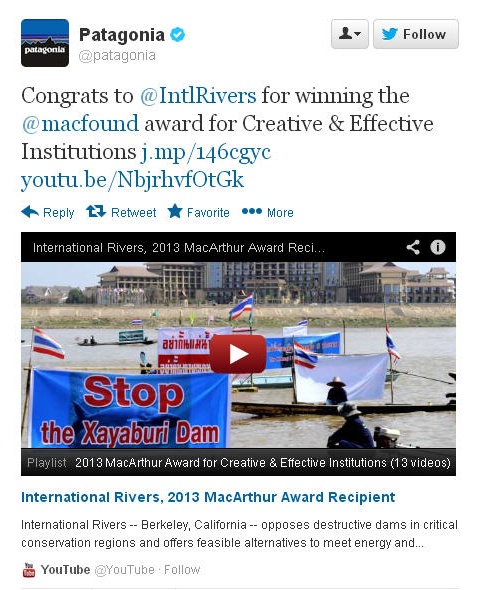Is brand trust, imbued by authenticity and transparency, the new economic currency in an age of social media? Read on and decide for yourself.

The topic of authenticity in today’s social media age fascinates me. If you follow me on Twitter, you’ll find I frequently pose questions about determining authenticity (more on my informal findings in a bit). I have a heightened sense of awareness thanks to articles I wrote on the importance of customer service and best practices when it comes to customer reviews. So when I heard about the new book by Bob Garfield and Doug Levy, “Can’t Buy Me Like: How Authentic Customer Connections Drive Superior Results”, I just had to leap at the chance to do an interview.
“No Sock Puppetry”
 If you haven’t ever read something from Bob Garfield or heard him speak, to say he doesn’t mince words is an understatement. He began our conversation by laying out the premise of his book: “Anything that’s sock-puppetry, clandestine, phony, false or subterfuge, we [the book's authors] are against.”
If you haven’t ever read something from Bob Garfield or heard him speak, to say he doesn’t mince words is an understatement. He began our conversation by laying out the premise of his book: “Anything that’s sock-puppetry, clandestine, phony, false or subterfuge, we [the book's authors] are against.”
His rationale is fairly simple: Human beings aren’t stupid. If a company tries to exploit social media by artificial means, they’ll eventually be caught, exposed publicly and the negative consequences can stain their reputation … potentially forever.
Social Media ≠ Advertising & PR
“Any company that thinks that advertising and public relations should just be transferred to social media doesn’t understand what social media really is,” explains Garfield. “Most companies with social media programs are doing everything exactly wrong! Instead of trying to build an authentic and real customer experience, most companies’ social media efforts are too broadcast, too one-way, too scripted.”
Garfield feels that big brands are the worst offenders because they play it too safe. “They’ve never before said anything on a public stage that hasn’t first been vetted by their legal departments…and then all of a sudden they’re trying to participate in an entirely uncensored [and real-time] environment.”
Better Run Companies Do Social Media Better
Garfield asserts that companies that run better from the inside out perform better in social media. “When everyone at a company knows why they’re there, mistakes in social media occur less frequently.” In other words, sums up Garfield, “A company that runs itself better internally is also more likely to be more authentic externally” … and it probably has less to hide.
This is important because Garfield believes that “society as a whole has now decided it intrinsically trusts brands more as a function of the brand’s values and how that brand comports itself. Data shows that the last time that product alone mattered was 2010. Today, the image of a company cannot alone be manufactured by advertising, and those that have to advertise their way into your attention have to spend three times more than companies who earn your attention by capturing it authentically.”
Over time, “institutions that distill, define and embrace a purpose will out-perform those that merely aim for maximizing shareholder value.” The bonuses for doing so include:
- Spending less on advertising
- Increasing consumer trust
- Trusted brands rebound more easily when mistakes are made
Ironically, “these successes will ultimately provide better shareholder value,” claims Garfield.
Garfield’s book highlights companies who “get” social media in this way: Zappos, Patagonia, Krispy Kreme and Panera Bread among them.

Authenticity Should be Easy .. but It Isn’t
When I asked Garfield why he thought something as simple as being authentic wasn’t being done more often, he gave a few reasons:
- It goes against everything that senior management at big brands learned at business school;
- It goes against the kind of mass marketing and mass media that every brand already knows and loves that is “so yummy”;
- Change is difficult
Which brings me back to my own obsession with authenticity. I’ve been less focused on the presentation of authenticity than the judgment of it.
What are our sniffers, our “authenticity filters” by which we conclude the “realness” of a person or brand as they conduct themselves on social media?
So far, it turns out that there isn’t a singular or clear answer to this question either. Here are some of the responses I’ve received on Twitter:
- “Genuine interaction and connection. And maybe a smidge of imperfection,” where “genuine” is further defined by “1) [Tweets are] Personal; 2) Depth of Relationship; 3) Non-automated responses” (@McTeamShari)
- “Your ability to have an opinion on something not related to your core business competency” (@graywolf)
- “Consistency of content. People who stay true to their brand are authentic. Bios are useful, but more useful is the history of content published.” (@adamjbrill)
- “Face & profile, generosity (helping & participating), personalization of topics and opinions” (@WagLegalEnglish)
- “Meeting someone in person, having verified contacts in common, talking by phone, chatting online in real-time-in that order.” (@caddguru)
How do you judge authenticity and what kind of role do you think authenticity will play in business as we go forward? Please help with my obsession by adding your comments and thoughts!
Comments(0)»
Leave a comment
Web Ad.vantage is a full-service online marketing company with core competencies in search engine optimization, PPC Campaign Management and online media buying. Visit our Internet Marketing Services section to learn more about our full range of services.
WebAdvantage.net encourages the reprinting of our marketing tips and articles. Before doing so, however, please contact us at for permission to do so. The company bio located above is required to accompany any reprint. Thank you in advance for your professional courtesy.
Pragmatic, professional advice with no hidden agenda.

Internet Business Forum






 back to top
back to top






